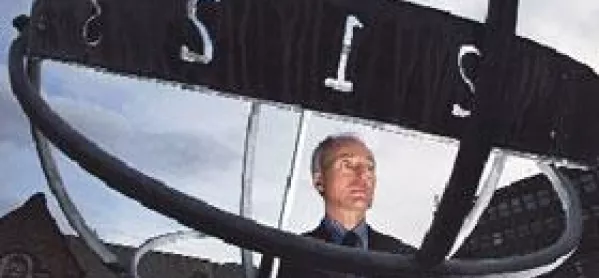Liberal education for all

One of Scotland’s intellectual heavyweights has labelled attempts to reform the curriculum over the past 20 years as “insidious” and “philistine”.
Lindsay Paterson, professor of educational policy at Edinburgh University, savaged what he termed “irrational barbarism” on the part of policy-makers which would deny the fruits of a broad, liberal education to pupils who needed it most - those at the bottom of the social heap.
Professor Paterson is a well-known critic of reforms such as Higher Still and A Curriculum for Excellence, but these latest remarks, delivered in a keynote address to the British Educational Research Association conference in Edinburgh on Wednesday, are his most biting yet.
He also took to task the report which is likely to be more influential than any other in shaping the future of Scottish education, the review by the Organisation for Economic Co-operation and Development. It suggested that the effects of deprivation were exacerbated by “a predominantly academic culture in schools”, and that “a strong emphasis on examinations in subjects of an academic or general kind favours . middle-class aspirations”.
Professor Paterson said the OECD report was heavily influenced by the Australian academic Richard Teese, the review team’s leading light and rapporteur, whom he described as a leading exponent of the “nebulous ideas” of the philosopher Bourdieu.
He denounced the idea of offering different curricula to different kinds of pupil as “an insidious idea, derived from tendentious research, that the liberal curriculum is intrinsically inaccessible to certain social groups, and hence that the curriculum needs to be reconstructed to avoid this alleged cultural bias”.
He suggested that the genuine reforms of the past, including the switch to comprehensive education, the advent of Standard grade and the earlier version of the Higher, had begun to open up education to more and more people - “democratised” it, as he put it.
The old Higher had seen “meaningful participation - getting three or more passes” - grow to one in three by the end of last century, a six-fold increase since the 1930s.
This was all now being overthrown, Professor Paterson continued, and there was no recognition by those such as the authors of the OECD report that “the whole history of the past 100 years has been an attempt gradually to democratise access to precisely that liberal culture that is mis-labelled as `academic’”.
He claimed that the reforms of the Higher and A Curriculum for Excellence lacked any coherent philosophy. “The over-riding concern is not cultural purpose but student motivation, which in turn is conflated with student enjoyment,” he said.
“There is then confusion between enjoyment as motivation, and enjoyment as goal, oblivious apparently to the elementary point that, in the liberal tradition which it rejects, fulfilment is not the same as enjoyment in the pursuit of fulfilment.”
Professor Paterson suggested there was now a consensus, even among those “vaguely on the left politically”, that education was no longer about passing on “the best of what is thought and said”.
This flew in the face of the most thoughtful of the liberal reformers in every generation who believed that “unless schools hand on the great human traditions, the culturally privileged - those who would get these traditions from their families anyway - would be merely confirmed in their intellectual superiority and therefore in their power”.
Professor Paterson concluded that educational reform was now an excuse to avoid doing anything radical to alleviate poverty or renovate the free market.
“Policy-makers, now philistine to the core, have been persuaded that a liberal curriculum is inaccessible to too many students, irrelevant to the needs of society and - at worst - a source of inequalities rather than the ground on which equality might be achieved.
“All this ignoring of rigorous research may be described only as irrational barbarism.”
Keep reading for just £1 per month
You've reached your limit of free articles this month. Subscribe for £1 per month for three months and get:
- Unlimited access to all Tes magazine content
- Exclusive subscriber-only stories
- Award-winning email newsletters

